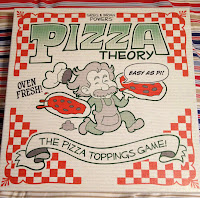 When I graduated college, there were many cards of congratulations, some with encouraging words, others with funny quips about "real life" and such beginning, but one stood out. My elementary principal, who was a family friend during and after my time in school, mom was on PTA and all that good stuff, sent me a card with a very nice bookmark. On the bookmark, there is a quote from Henry David Thoreau, "Go confidently in the direction of your dreams."
When I graduated college, there were many cards of congratulations, some with encouraging words, others with funny quips about "real life" and such beginning, but one stood out. My elementary principal, who was a family friend during and after my time in school, mom was on PTA and all that good stuff, sent me a card with a very nice bookmark. On the bookmark, there is a quote from Henry David Thoreau, "Go confidently in the direction of your dreams."Now, I'm not the biggest fan of Thoreau, but the quote is a good adage to strive towards, a good message when nothing is going right, and a good reminder when everything is going well. All of us have many dreams, some seem like pipe dreams or the things that have almost no chance of happening, but others seem obtainable. Maybe they're a longshot, but that's what dreams are for. Dreams inspire us to keep going, to do more than we think we can.
At this point you're probably thinking something along the lines of "well that's all well and good, but what does this have to do with boardgames?" Well, 2 parts. The first part is this blog. This blog started as a dream. I wanted a way to voice my thoughts and opinions on boardgames. I never dreamt I'd get nearly 7000 page views in 8 months. I never dreamt I'd have dicetowernews posting about my blog, or countless game companies retweeting and reposting my reviews. I set out on a cool idea, blogging about boardgames, and I found a wonderful community where the people do care, and do appreciate what you have to say, even if they disagree with you.
The second part of the dream is what has turned into Star Runner, my game design. I dream of getting that game published. I'm working on that dream practically every day. It's a very long process, but I'm going to get there someday. I honestly believe that, because if I didn't, I wouldn't keep going. I think the game is fun, I think there's some cool stuff out there, and every time I play, I'm learning more about it. The best part, other people are excited to play, and keep asking to play. That's the biggest thing for me, because even if the game never gets published, it's something I can play with my friends, and isn't that fulfilling the dream? Ok, maybe it's a modified dream, but it's still there.
Here's the takeaway. Dare to Dream! Take the thing you want to do, or love doing, and go for it. If it doesn't work out, try something else, but keep dreaming.
*gets off the soapbox, puts it back in the corner with the cobwebs*
Thanks for indulging me in a philosophical post. Let me know what you think. Do you want to see more of these? Do you want me to stay away from these? Let me know. I can take criticism.












